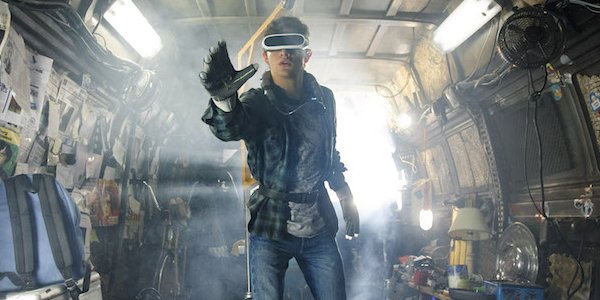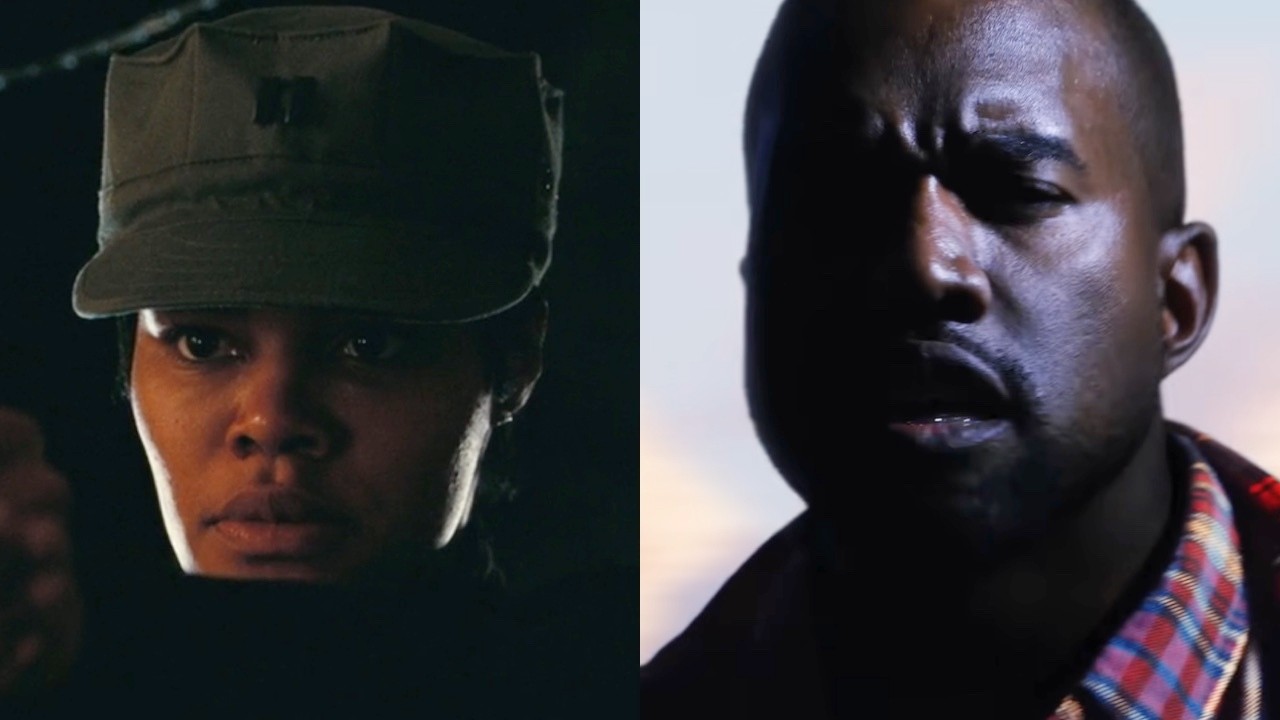One Big Question About The OASIS We Wish Ready Player One Answered

Warning! Spoilers to follow for Ready Player One. Come back later if you haven't seen it yet.
Steven Spielberg is an unimpeachable legend of the science-fiction genre. The sheer awesomeness of Jurassic Park alone would make him a candidate for this stature, but then the man also has Close Encounters of The Third Kind, E.T. The Extra Terrestrial and Minority Report on his filmography. The man clearly knows how to weave a story with a futuristic/technological bent... but watching Ready Player One it's hard not to notice that he fails to do one thing that is really crucial to this kind of storytelling: he never actually gives audience a larger sense of the world in which the central narrative is taking place, or any idea of what normal life is like.
It should be recognized up-front that Ready Player One carries a whole ton of exposition in its first act -- so much so that it requires forced voiceover narration from Tye Sheridan's Wade Watts. There is a lot to quickly get across so that the audience can understand what's going on, from the history of James Halliday (Mark Rylance) and the OASIS, to the Easter egg hunt that has been in effect ever since Halliday's death. But when it comes to how all of this makes the movie's world different than our own, it falls short. Sure, Columbus, Ohio has become a hotspot in America, and that people of all ages are obsessed with the game, but the film lacks important context that is needed to give the story meaning and the protagonist depth.
Surprisingly, this issue could be identified as a problem born in the complications of adaptation, because all of these missing details are very much present in Ernest Cline's novel. While the movie version of Wade Watts is almost exclusively depicted as a "Gunter," using every waking moment searching for Halliday's three keys, the Ready Player One book offers much more to his everyday life. Instead of just having Sorrento casually mention that schools could be made to look like those in John Hughes movies, Wade actually attends classes; and he deals with personal complications like being so broke he can't actually travel off-world and explore the game like everyone else. Those elements are completely missing in the film, and they are problematic omissions.
The principal problem that emerges from the lack of world building is the fact that the setting of the Ready Player One movie feels entirely ordinary, and by extension doesn't really give the OASIS any kind of apparent significance. Sure, we're told that people go to school and work inside of the program, but it's the classic issue of telling instead of showing. With so much emphasis on Gunter activity and Planet Doom, there's very little in the movie that suggests it's the society-changing technology that it's supposed to be. Really, it just comes across as outrageously popular video game, which isn't really the point.
Not only is the OASIS diminished by the lacking background in Ready Player One, but Wade Watts is also severely undercut as a protagonist. As alluded to, the book paints the character as being incredibly poor, but able to succeed in the great Easter egg hunt because of his ingenuity and knowledge. The benefit of knowing who Wade is outside of the game gives us a reason to cheer him on as he's playing it. The movie basically removes half of this equation, though, and while you can still cheer on Wade because he clearly knows his stuff, his journey simply isn't as compelling because of the deleted conflict, and there's a degree of satisfaction removed from what he's ultimately able to accomplish.
Ready Player One is a fun big screen adventure with a lot of eye-popping imagery, but it also leaves a lot to be desired in its creation of its world. For a movie that's supposed to be all about the special creation of a vast virtual universe, it's surprisingly narrow in its focus, and while asking what society is like beyond the Easter egg hunt seems like a simple question for a blockbuster with its scope, it's one that is unfortunately left unanswered.
Your Daily Blend of Entertainment News

Eric Eisenberg is the Assistant Managing Editor at CinemaBlend. After graduating Boston University and earning a bachelor’s degree in journalism, he took a part-time job as a staff writer for CinemaBlend, and after six months was offered the opportunity to move to Los Angeles and take on a newly created West Coast Editor position. Over a decade later, he's continuing to advance his interests and expertise. In addition to conducting filmmaker interviews and contributing to the news and feature content of the site, Eric also oversees the Movie Reviews section, writes the the weekend box office report (published Sundays), and is the site's resident Stephen King expert. He has two King-related columns.
